This is the second post in an ongoing series highlighting self-published authors who are making a living from their work – not scoring a BookBub promo every month, not ranked among the Top-Selling Authors on Amazon. Just folks like us, paying bills and trying to figure out what works. I discovered author Todd Borg while eavesdropping on a Facebook conversation, which is ironic because Todd is a successful self-published author who doesn’t do social media. That made me curious, so I Googled him and found his website, checked out his books on Amazon, and emailed an invite to share his story. Todd is a testament to the fact that there is no one road to success for a self-published author. Read on!
 Thank you, Molly, for allowing me to throw in my thoughts on publishing. Hi everybody! My name is Todd Borg, and I write the Owen McKenna Tahoe mysteries. I’ve written 12 novels to date. The first came out in August 2001, and the 12th in August 2014. I had some gaps between books in the early years, but after my 4th they were doing well, and I believed – with fingers crossed! – that I could possibly make a living from writing, so I quit my day job and began working on the business full time.
Thank you, Molly, for allowing me to throw in my thoughts on publishing. Hi everybody! My name is Todd Borg, and I write the Owen McKenna Tahoe mysteries. I’ve written 12 novels to date. The first came out in August 2001, and the 12th in August 2014. I had some gaps between books in the early years, but after my 4th they were doing well, and I believed – with fingers crossed! – that I could possibly make a living from writing, so I quit my day job and began working on the business full time.
Since 2007, I’ve published one book a year – not a very good production level, but I’ve thrown most of my efforts into getting myself and my books in front of readers. I’m trying to step up my game to two books a year. So I’m working on a second series that I will probably publish after I have the first three completed.
I’ve learned that a series is a powerful way to find readers, retain them, and sell more books. Last year, Publishers Weekly did a study showing that many years ago most bestselling books were stand-alones. But now, most bestselling books belong to a series. Readers love to revisit characters they’ve come to know – assuming the characters are enjoyable to spend time with! As for pricing, my first book, Tahoe Deathfall, is perma-free, the second is 99 cents, and the rest are 3.99.
As Molly mentioned, I’m not very tech fluent and I’m a slow adopter of tech, so I never did social media – no Facebook or Twitter or LinkedIn. (Somebody put up a fan page on Facebook for my books, but I am not involved.) I actually think this benefited me. It takes a lot of time, and it doesn’t attract new readers so much as it allows you to communicate with readers you already have. Of course, communicating with current readers is good. But it might be better to spend that time writing. I do respond to all emails, and I write a weekly blog.
I did not move into ebooks until 2011 but they are now 85% of my business by units and 65% of my business by dollars. Because I do a decent print book business, my sales stay fairly consistent through the year.
I’m a good example of the power of having a backlist with good reviews. You don’t have to be way up the author ranking list to do well. On 12-2-14, my Amazon author rank was 6702, and my 2014 sales will be over $100,000.
Promotion Strategy
Like many authors, in the beginning I was focused on bookstores. We all so dearly love to see our books on a bookstore shelf! I did maybe a hundred bookstore signings, some very successful, most not. Eventually, I shifted more of my efforts to exhibiting at festivals (more about this later) and selling books through non-bookstore venues. For example, my best retail customers are The Red Hut Cafes in South Lake Tahoe and Carson City. (My protagonist periodically eats at their restaurant.) They sell a thousand books a year.
My promo strategy has changed to be more focused on Amazon. Love it or hate it, Amazon rules, and you can’t survive without an active Amazon presence. Now, I put my newest title in KDP Select for approximately 9 months so I can use their freebie promo, then I take it out so I can upload the book to Smashwords (which, although great and to be recommended, only sells about 6% of what the Zon sells.)
When each new title comes out, I send out a couple of dozen ARCs, an email announcement, and a snail mail postcard.
I’ve only done three BookBub promotions, but each has done very well. After BookBub, my highest-dollar promotions come from exhibiting at festivals.
Personal appearances
I do lots of talks at book clubs, Rotary meetings, libraries, schools, civic clubs, and AAUW groups, etc. Personal appearances are a great way to showcase your books and yourself as an author. People remember authors, and their books, much better if they’ve met them.
I’ve also learned that while the specialty author events I’ve done, such as the Los Angeles Times Festival of Books, and the Tucson Book Festival, are good experiences, you are sharing reader attention with 650 other authors. I’ve been much more successful doing festivals where I’m the only author. I’ve exhibited at around 80 festivals. (I’ve blogged about this several times) Of course, general festivals have a much lower concentration of readers, but I get them all to myself! At a lousy weekend festival, I sell 60 books. At a good one, 150 books. My best festival was 206 books, and I’ve sold 150 books or more at 11 of those festivals.
Festivals are a lot of work, but there is no better way to get in front of thousands of people. In addition to signups on my website, I also put out an email signup sheet at festivals and through that have grown an email list of about 2300 readers. Festivals are also great for handing out postcards, and many readers who take my postcard will download the first book.
Some festivals require travel, but I also did many local festivals before I quit my day job. Most were weekend shows where you set up early Saturday morning and take down Sunday night, which is compatible with many jobs. I also used vacation time to do festivals that were farther away such as the Bay Area and SoCal. In 2014 I did fewer festivals and that gave me more time to write. So my main plan for change in 2015 is to spend a bit less time on the road and write more.
I should add that my business model works best with offset printing in volume, not POD, which results in a cheaper per-book cost. The problem with offset is you have to order 1000+ books to get a good price (I order 4000 for a new title and 1000-2000 for reprints.) But you need to be sure that you won’t end up with a garage full of books you can’t sell. So I recommend starting with POD. After you’ve demonstrated to yourself that you can sell books, if you upgrade to offset printing you can make substantially more money.
Print books are much more work than ebooks, but every print book is a walking advertisement for me, whereas no one can see what’s inside someone’s Kindle.
Important lesson #1: Waiting for inspiration
I still sometimes commit my biggest mistake, which is waiting until I have inspiration or excitement to write. Writing when you’re excited is a great feeling. But I’ve learned that simply sitting down and writing creates the necessary structure of your book, inspired or not. And even if some (or a lot!) of your writing is lame and will eventually get thrown out, that structure gives you something to work from. Good writing is always about rewriting and editing and rewriting again. And again. And again.
Important lesson #2: The value of editing
One of the most valuable lessons is the importance of editing. If you look at books with lots of one-star reviews and see how many are about bad editing, you have to think that those authors would dearly love to go back and start over, hiring two or three editors before they published. The number and quality of reviews make a huge difference in a book’s sales, and much of that is affected by editing. I put my books through four editors, and each one finds different problems.
Important lesson #3: Cover art
I’ve continuously seen that writers see and hear the standard advice on hiring a professional cover designer and then ignore it because they think they’ve found a good way to do it cheap. But authors are poor judges of what makes a cover effective. You need a professional cover designer. When books with amateur covers don’t sell, the writer often thinks that lack of sales is because the business is difficult. They refuse to recognize that much or even most of their problem is a non-professional cover that looks good to them but doesn’t motivate readers to pick up the book.
Many writers whose books sell well are the first to tell you that a large part of their success in finding new readers comes from their covers. That is certainly true with my books. When a reader doesn’t know the author, what draws their interest is the cover. After they read your first book, the quality of the story determines whether or not they buy more. If you are struggling to get people to try your book, get a new, pro cover.
Important lesson #4: Write good books
As for the most important lesson I’ve learned, I believe the single most important thing you can do to find success as an author is to write a novel that motivates readers to tell all their friends about it and insist that they try your book. If your reader is sweating and worrying and all bent out of shape by the trouble your sympathetic character is in, and then your reader is rooting for your character as he or she takes on a far superior antagonist, and then your reader is cheering when your character succeeds through grit and perseverance and bests the villain in the end, then that reader will buy multiple copies of everything you ever write and give them away as presents and write glowing reviews and invite you to dinner with their book club. They become part of your core audience, and when your core audience gets to be of a sufficient size, you are home free as long as you keep writing quality books and put out at least one a year to keep them happy.
The quality of the book rules.
Advantages of self-publishing
Control of your career. No traditional editor is telling me I have to change my story. No editor is making me put in sex or more violence. No publisher is giving me a lousy cover or standing between me and my numbers.
Amazon’s real-time sales reporting. When I give a talk or do a festival, I can go back to my hotel and see the bump in Kindle sales. If a publisher were on the receiving end of that sales dashboard, I’d be eternally frustrated and constrained, unable to adjust to the market, unable to know what was working and what was not. And if I want to fix a homophone screw-up or some other problem in a book, I can upload a new version now. If I had to wait for a publisher in any of these matters, it would take all the fun out of the business.
Keep the money. If I were trad published, I probably would have been orphaned after three books, because I had no platform in the beginning and no way to sell 25,000 books (as Michael Pietsch, former Editor-in-Chief at Little Brown, now CEO at Hachette said in a talk he gave at the Squaw Valley Community of Writers.) He said a good book is important, but much more important is the author’s platform. Which is why Saul Bellow – after he won the Nobel Prize – supposedly had a book he couldn’t get published and Paris Hilton can get a big six-figure deal.
And if I had been lucky enough to make the cut and hadn’t been orphaned, I probably would still have to work a day job. Most authors with 12 trad-published books still have a day job because most of their earnings go to the publisher. As a self-published author, I was able to chuck the day job and can earn a good living doing what I love.
You have to love writing to succeed
From my observation that there are two kinds of writers. The first group is comprised of people who are in love with the idea of being a writer. The second group is comprised of people who are in love with writing. Those are two very different things. People in the first group often say that the worst thing about being self-published is finding the discipline to write when no one is making them do it. These people struggle and have a very hard time finding success.
People in the second group are the ones who succeed.
For people in the second group, there is nothing really hard about being a self-published author unless you quit your day job too soon and don’t have enough money. Much of the non-writing work is tedious, but sitting around drinking coffee and making up stories for a living is simply great by any measure. Thousands or even millions of people are eager to write when they retire. They won’t need the money, yet they will write anyway for the love of it. So it’s hard to find much to dislike in doing what we would do even if we didn’t need to make money from it.
In closing, I’d like to say that this is the greatest time in history to be a novelist. No longer is anyone standing in your way. And no longer do you have to give 90% of your receipts to a publisher. I believe that if you write compelling stories about compelling characters, and package them with compelling, professional covers, you will eventually find success. Thanks very much for your time and interest!
 Tahoe local Todd Borg is the bestselling author of twelve Owen McKenna Mystery Thrillers. Borg’s novels have won the Ben Franklin Award for Best Mystery of the Year, made Library Journal’s Top 5 Mysteries of the Year list, received rave reviews including a starred review in Library Journal, and made Amazon’s Crime Thriller and Private Investigator Bestseller Lists multiple times.
Tahoe local Todd Borg is the bestselling author of twelve Owen McKenna Mystery Thrillers. Borg’s novels have won the Ben Franklin Award for Best Mystery of the Year, made Library Journal’s Top 5 Mysteries of the Year list, received rave reviews including a starred review in Library Journal, and made Amazon’s Crime Thriller and Private Investigator Bestseller Lists multiple times.
Readers, do you have questions or comments for Todd? Do you see similarities between what has worked for you – and what hasn’t – and Todd’s experiences? Please leave a comment and share!
Enjoy this article? Subscribe to my blog and you’ll never miss my weekly posts! I will not share your email address with anyone – that’s a promise. If you’re not already, please follow @mollygreene on Twitter! And last but not least, this original content by Molly Greene is copyright protected. Mwah! Thank you so much.
By the way, are you a self published author who is successfully earning a living from your books? Leave a comment, and I may be able to profile you in a future post.
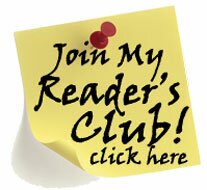
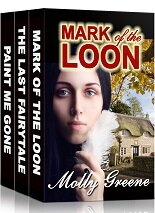
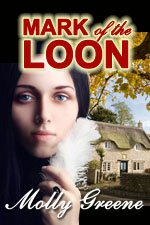
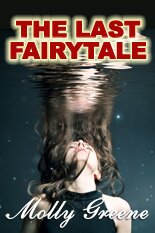
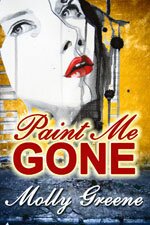
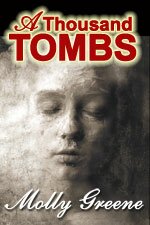
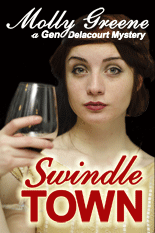
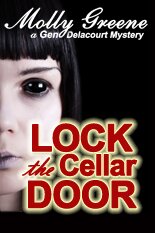
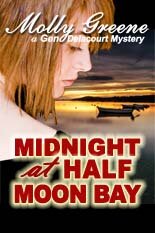
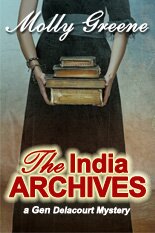

Comments are closed.